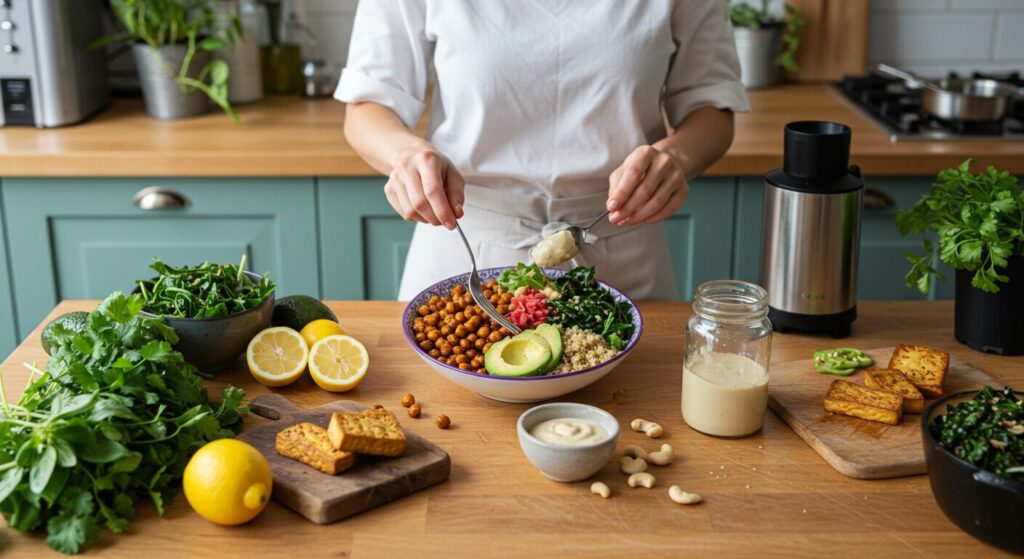
Vegan
$11.75 — or $11.75 Original price was: $11.75.$9.99Current price is: $9.99. / week
The vegan diet is a plant-based lifestyle that embraces the power of compassion and sustainability while promoting a healthy and balanced approach to eating. At its core, a vegan diet excludes all animal-derived products, including meat, poultry, fish, eggs, dairy, and honey. It revolves around the principle of consuming foods that are solely derived from plants.
Ingredients
Cal
N/A
Prot
N/A
Carb
N/A
Fat
N/A
Our Take On Vegan
The vegan diet is a plant-based lifestyle that embraces the power of compassion and sustainability while promoting a healthy and balanced approach to eating. At its core, a vegan diet excludes all animal-derived products, including meat, poultry, fish, eggs, dairy, and honey. It revolves around the principle of consuming foods that are solely derived from plants.
Recommended Ingredient List:
Fruits and Vegetables: Colorful and nutrient-dense fruits and vegetables form the foundation of a vegan diet. These include leafy greens, berries, citrus fruits, cruciferous vegetables, and a wide variety of other plant-based options.
Whole Grains: Nourishing whole grains like quinoa, brown rice, oats, millet, and whole wheat are important sources of complex carbohydrates, fiber, and essential nutrients.
Legumes and Pulses: Beans, lentils, chickpeas, and other legumes provide a rich source of plant-based protein, fiber, and minerals.
Nuts and Seeds: Almonds, walnuts, chia seeds, flaxseeds, hemp seeds, and more are excellent sources of healthy fats, protein, and essential micronutrients.
Plant-Based Protein Sources: Tofu, tempeh, seitan, and plant-based protein powders offer versatile and satisfying options to meet protein requirements.
Restricted Food Ingredients:
Animal-Derived Products: All types of meat, poultry, fish, seafood, eggs, and dairy
Products are excluded from a vegan diet.
Honey: Since it is produced by bees, honey is not considered vegan-friendly and is avoided.
Gelatin: Gelatin, derived from animal connective tissues, is commonly found in desserts, candies, and certain food products, and is not consumed in a vegan diet.
Animal-Based Additives: Ingredients like dairy-based additives (whey, casein), certain food colorings derived from insects (e.g., cochineal or carmine), and some food additives like collagen are avoided in vegan eating.
The vegan diet offers endless possibilities for cooking and culinary creativity. In fact, cooking plays a significant role in the vegan lifestyle, as it allows individuals to explore a wide range of flavors, textures, and cooking techniques using plant-based ingredients.
Vegan cooking encompasses various methods, including sautéing, stir-frying, baking, roasting, steaming, grilling, and more. The majority of the diet can be cooked, as vegan cuisine encompasses a diverse array of plant-based ingredients, such as fruits, vegetables, grains, legumes, nuts, and seeds, which lend themselves well to cooking and preparation.
From hearty vegetable stews and vibrant stir-fries to plant-based bowls, decadent desserts, breakfasts’ and homemade nut sauces, vegan cooking offers a wealth of options. With the right ingredients, spices, and techniques, it is possible to create satisfying and flavorful meals that cater to a vegan lifestyle.

